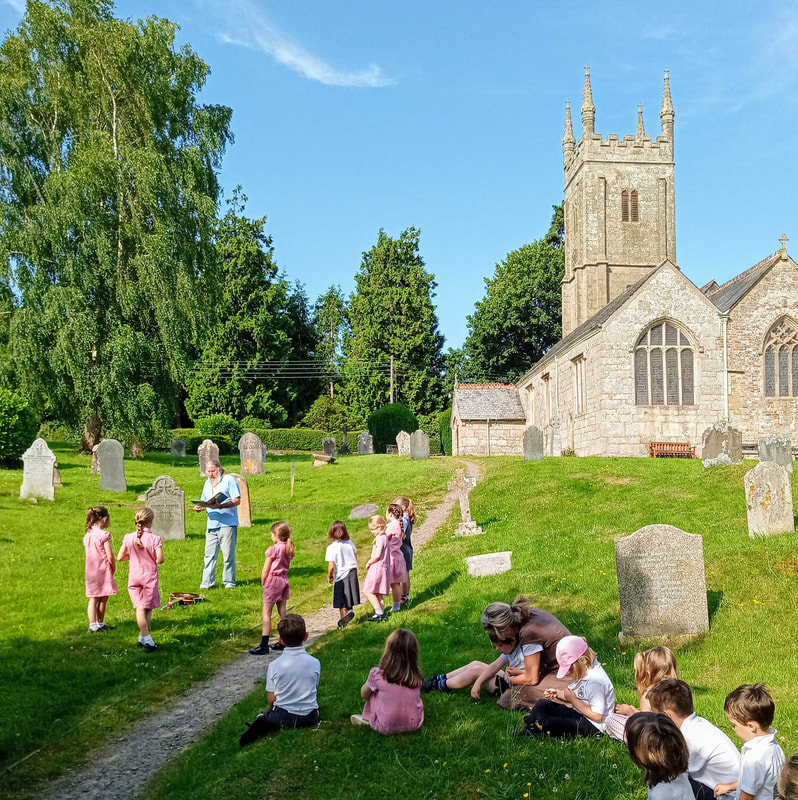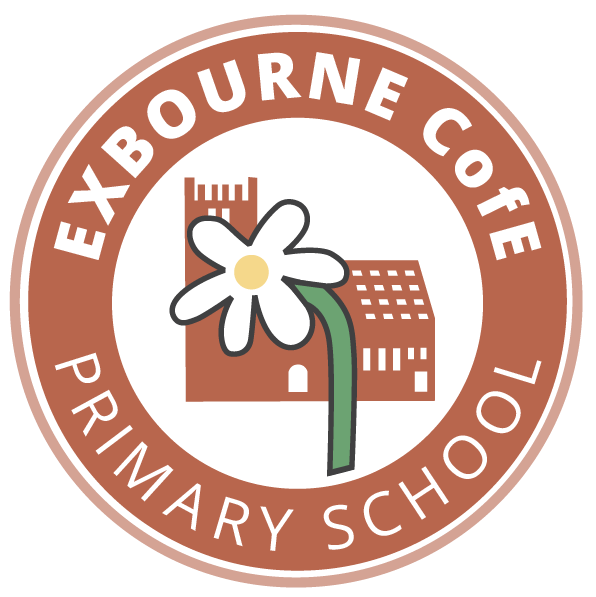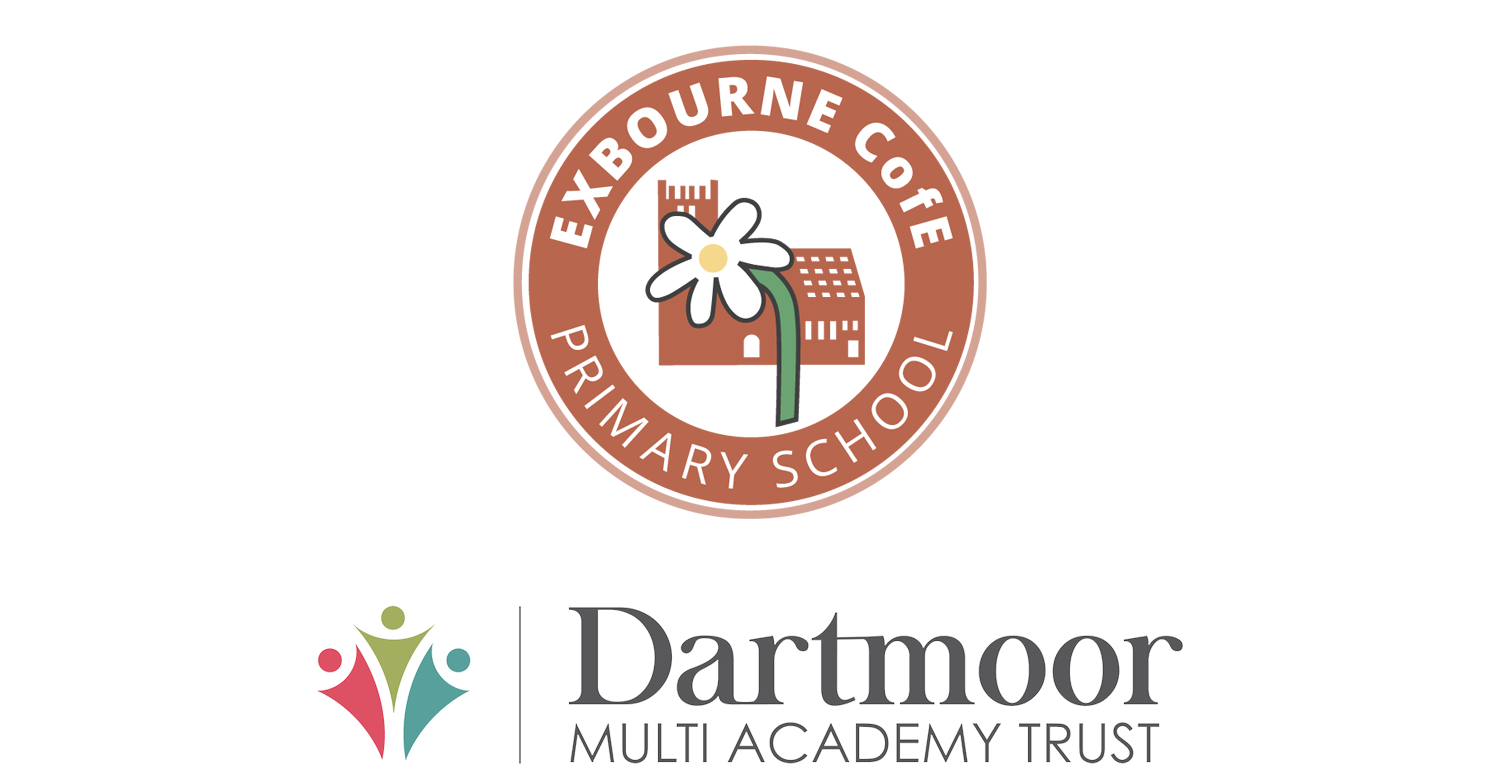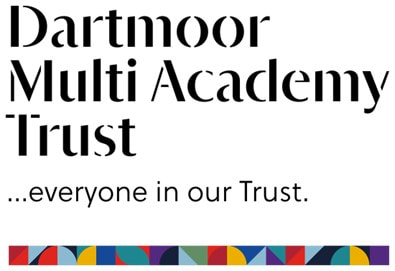Curriculum
At Exbourne C of E Primary, we have created a curriculum which aims to develop the whole child; to build the skills and confidence to become a valuable member of the community and wider world and to own the tools to tackle life’s challenges with a smile.
Our curriculum is inclusive and allows all types of learners, those with SEN and high ability and talented children to thrive. Our children are encouraged to think about how they are living their lives, to be good citizens in school, the community and globally. The curriculum incorporates the statutory requirements of the National Curriculum 2014 and is enriched through experiences and opportunities which best meet the learning and developmental needs of the children in our school.
We foster a love for education, school, friends, family and ourselves. Using social learning, daily worships and RE lessons we encourage a strong personal focus on love for others. Wherever possible children will take part in a trip, visitor or experience each term. The school places a high priority on the performing arts; public speaking, dance, drama, singing and music. Through our daily worships the children regularly sing and perform. Specialist music teachers are employed to promote the playing of instruments whilst festivals such as Harvest, Christmas and Easter are led by the children in St Mary’s church.
The main aim of our curriculum is for children to have the requisite skills to be successful, independent and motivated learners in readiness for their next stage of education; preparing them for life as global citizens in the 21st century. Children who attend Exbourne Primary School build cultural capital by working within the community and local church to improve their local area. The school has strong links with the Anglican and Methodist churches as well as members of our community. We strive to ensure all our children are lifelong learners and build upon their skills and knowledge gained at our school.
Our curriculum is inclusive and allows all types of learners, those with SEN and high ability and talented children to thrive. Our children are encouraged to think about how they are living their lives, to be good citizens in school, the community and globally. The curriculum incorporates the statutory requirements of the National Curriculum 2014 and is enriched through experiences and opportunities which best meet the learning and developmental needs of the children in our school.
We foster a love for education, school, friends, family and ourselves. Using social learning, daily worships and RE lessons we encourage a strong personal focus on love for others. Wherever possible children will take part in a trip, visitor or experience each term. The school places a high priority on the performing arts; public speaking, dance, drama, singing and music. Through our daily worships the children regularly sing and perform. Specialist music teachers are employed to promote the playing of instruments whilst festivals such as Harvest, Christmas and Easter are led by the children in St Mary’s church.
The main aim of our curriculum is for children to have the requisite skills to be successful, independent and motivated learners in readiness for their next stage of education; preparing them for life as global citizens in the 21st century. Children who attend Exbourne Primary School build cultural capital by working within the community and local church to improve their local area. The school has strong links with the Anglican and Methodist churches as well as members of our community. We strive to ensure all our children are lifelong learners and build upon their skills and knowledge gained at our school.
Anchor Element
Copy for linking on the same page:
https://www.exbourne-primary.devon.sch.uk/learning-hub.html?data-scroll-to-anchor=Cur
Copy for linking from an external page:
https://www.exbourne-primary.devon.sch.uk/learning-hub.html?data-anchor-link=Cur
National Curriculum
We believe that it is necessary for children to develop key skills in English and Mathematics. These skills are fundamental to progress in all subjects. Exbourne Primary School teaches the National Curriculum, in the context of the Devon Curriculum Statement, which includes the following areas of study:
We use the Devon Book Banding scheme supported with Babcock Learning and Development Partnership's 'Rethink Reading' principles. KS2 also studies a Modern Foreign Language (French) for the summer term. A specialist teacher delivers this teaching. Religious Education is also taught following the Devon agreed syllabus. Often specialist teachers for music and PE teach sessions for the school. OCRA, based at Okehampton College provide coaches. Along with the other DMAT schools, Exbourne School engages in many sporting events through OCRA. The school currently uses a two-year rolling programme in KS1 and a new four-year rolling programme in KS2 has been implemented to deliver these subjects through a topic based curriculum. Links are made with KS1 as much as possible.
- English
- Maths
- Science
- Design and Technology
- History
- Geography
- Music
- Art
- Physical Education
- PSHE (Personal, Social and Health Education)
We use the Devon Book Banding scheme supported with Babcock Learning and Development Partnership's 'Rethink Reading' principles. KS2 also studies a Modern Foreign Language (French) for the summer term. A specialist teacher delivers this teaching. Religious Education is also taught following the Devon agreed syllabus. Often specialist teachers for music and PE teach sessions for the school. OCRA, based at Okehampton College provide coaches. Along with the other DMAT schools, Exbourne School engages in many sporting events through OCRA. The school currently uses a two-year rolling programme in KS1 and a new four-year rolling programme in KS2 has been implemented to deliver these subjects through a topic based curriculum. Links are made with KS1 as much as possible.
History
Our History curriculum includes termly topics for all children from Year 1 to Year 6. We aim to offer a high-quality history education that will help pupils gain a coherent knowledge and understanding of Britain’s past and that of the wider world. It should inspire pupils’ curiosity to know more about the past. Teaching should equip pupils to ask perceptive questions, think critically, weigh evidence, sift arguments, and develop perspective and judgement. History helps pupils to understand the complexity of people’s lives, the process of change, the diversity of societies and relationships between different groups. It also helps children gain a sense of their own identity within a social, political, cultural and economic background. Because of this, we feel it is important for the subject to be taught discretely as well as incorporated within other curriculum subjects such as English and Art.
Early Years Foundation Stage
Transition into the school for EYFS children is thorough due to the strong links with our pre-school that is adjacent to our school site. Children in Nursery and Reception follow the Early Years Foundation Stage Curriculum. This learning challenges children and encourages them to develop into independent, motivated learners and thinkers, full of curiosity about the world around them within a fun, happy and secure environment.
The Early Years Foundation Stage curriculum is based on the following seven areas of learning:
Curriculum Overview: Foundation
The Early Years Foundation Stage curriculum is based on the following seven areas of learning:
- Communication and Language
- Personal, Social and Emotional Development
- Physical Development
- Maths
- Literacy
- Understanding of the World
- Expressive Arts and Design
Curriculum Overview: Foundation
Computing
At Exbourne C of E Primary School, we believe in giving children the skills needed for the 21st Century – computing is a key component of this. Our curriculum is designed to give our learners the skills and knowledge needed to access computing technology.
The computing curriculum is designed to build upon knowledge and skills with technology with a strong thread of online safety.
At all times the skills and knowledge practiced will be linked to contextualised applications with links to science, maths and other curriculum areas.
The computing curriculum is designed to build upon knowledge and skills with technology with a strong thread of online safety.
At all times the skills and knowledge practiced will be linked to contextualised applications with links to science, maths and other curriculum areas.
Key Stage 1
Children are still working on the Early Learning Goals of the Early Years Foundation Stage Curriculum as they enter Year 1. There is a period in the Autumn Term where the majority of children progress to the KS1 National Curriculum. Throughout this period and beyond all children continue to develop their Phonic knowledge through the Letters and Sounds and Jolly Phonics programmes and their fluency in reading through a banded reading Scheme and Rethink Reading strategies.
The National Curriculum is delivered using an integrated topic approach and assessed using National Curriculum statements as a basis to ensure coverage and progression throughout the school. The more-able are extend to greater depth in their learning and children who find aspects of their learning more challenging are appropriately supported, so that they too are enabled to experience success.
The National Curriculum is delivered using an integrated topic approach and assessed using National Curriculum statements as a basis to ensure coverage and progression throughout the school. The more-able are extend to greater depth in their learning and children who find aspects of their learning more challenging are appropriately supported, so that they too are enabled to experience success.
Geography
Geography is a key skill for life and our curriculum is designed to build the knowledge and skills children need to know about their local area, their country and the wider world. We aim to widen children’s horizon to other parts of the country and world that they may not otherwise be aware of. Key skills of map reading, and compass skills are built upon throughout the school.
Physical Education
At Exbourne Church of England Primary School, we recognise the importance of PE and the role it has to play in promoting long term, healthy lifestyles. The intent of our PE curriculum is to provide all children with high quality PE and sport provision. It is our vision for every pupil to succeed and achieve their potential as well as to lead physically active lifestyles. We strive to inspire our pupils through fun and engaging PE lessons that are enjoyable, challenging and accessible to all. We want our pupils to appreciate the benefits of a healthy and physically active lifestyle. Through our teaching of PE, we will provide opportunities for pupils to develop values and transferrable life skills such as fairness and respect as well as providing them with opportunities to take part in competitive sport.
We use the ‘Real PE’ scheme of work to support and improve our planning and lessons.
We use the ‘Real PE’ scheme of work to support and improve our planning and lessons.
Music
At Exbourne, the intention is that children gain a firm understanding of what music is through listening, singing, playing, evaluating, analysing, and composing across a wide
variety of historical periods, styles, traditions, and musical genres. Our objective is to develop a curiosity for the subject, as well as an understanding and acceptance of the validity and importance of all types of music, and an unbiased respect for the role that music may wish to be expressed in any person’s life. We are committed to ensuring children understand the value and importance of music in the wider community, and
are able to use their musical skills, knowledge, and experiences to involve themselves in music, in a variety of different contexts.
We use Music specialists teachers to teach progression and skills as well as platforms such as ‘Charanga’ and ‘The Voices Foundation’ to implement these skills.
variety of historical periods, styles, traditions, and musical genres. Our objective is to develop a curiosity for the subject, as well as an understanding and acceptance of the validity and importance of all types of music, and an unbiased respect for the role that music may wish to be expressed in any person’s life. We are committed to ensuring children understand the value and importance of music in the wider community, and
are able to use their musical skills, knowledge, and experiences to involve themselves in music, in a variety of different contexts.
We use Music specialists teachers to teach progression and skills as well as platforms such as ‘Charanga’ and ‘The Voices Foundation’ to implement these skills.
English
The school uses high quality texts to teach writing with valuable vocabulary, grammar and writing styles to provide a good model for pupils’ writing. Children are encouraged to be ambitious writers, make adventurous word choices and build an interesting and engaging text. Daily guided reading sessions in conjunction with reading at home encourage a love and enjoyment of books and reading. Using ‘Re-think reading’ resources each class has a strong guided reading programme whilst using class texts for pupil enjoyment. Children learn to become confident, articulate and clear public speakers through a range of performances and events.
Maths
Mathematics is delivered through a Mastery curriculum framework developed by consultants within the Local Authority and supported by the White Rose Scheme of Work. Children are provided daily opportunities to build on key knowledge and facts and develop their fluency, reasoning, investigative and problem solving skills.
This document outlines the progression of different calculation strategies that could be taught and used from Reception to Year 6:
This document outlines the progression of different calculation strategies that could be taught and used from Reception to Year 6:
Art and Design
Early Learning Goals
The development of children should be expected to have been attained by the end of the EYFS and is defined by early learning goals (ELGs). They should not be used as a curriculum or in any way limit the wide variety of rich experiences that are crucial to child development.
Expressive Arts & Design
The development of children’s artistic and cultural awareness supports their imagination and creativity. It is important that children have regular opportunities to engage with the arts, enabling them to explore and play with a wide range of media and materials. The quality and variety of what children see, hear and participate in is crucial for developing their understanding, self-expression, vocabulary and ability to communicate through the arts. The frequency, repetition and depth of their experiences are fundamental to their progress in interpreting and appreciating what they hear, respond to and observe.
Science
A high-quality science education provides the foundations for understanding the world through the specific disciplines of biology, chemistry and physics. Science has changed our lives and is vital to the world’s future prosperity, and all children should be taught essential aspects of the knowledge, methods, processes and uses of science. Through building up a body of key foundational knowledge and concepts, children should be encouraged to recognise the power of rational explanation and develop a sense of excitement and curiosity about natural phenomena. They should be encouraged to understand how science can be used to explain what is occurring, predict how things will behave, and analyse causes.
Exbourne follows the National Curriculum for science and aims to ensure that all children:
Exbourne follows the National Curriculum for science and aims to ensure that all children:
- Develop scientific knowledge and conceptual understanding through the specific disciplines of biology, chemistry and physics.
- Develop understanding of the nature, processes and methods of science through different types of science enquiries that help them to answer scientific questions about the world around them.
- Are equipped with the scientific knowledge required to understand the uses and implications of science, today and for the future.
Spirituality at Exbourne C of E Primary
Exbourne C of E Primary offers a spiritual and moral basis for the development of the whole child and a solid foundation for personal and social values based on our core Christian values. A distinctive language is provided for understanding life and interpreting human experience. As a community of faith and through our Christian distinctiveness, we can begin to discover who we are, why we are, and - perhaps most importantly - what we might be.
Spirituality is at the heart of our values-based curriculum. We start each half term with a ‘big question’ which encourages children and adults to reflect on our beliefs and values. Spirituality is how we understand ourselves and our place in the world: recognising strengths, weaknesses and having confidence to challenge ourselves. We care for the local and global community and our Christian values underpin our learning and encourage children to ask ‘big questions’.
Some of the opportunities we offer to children at Exbourne for their spiritual development are:
Spirituality is at the heart of our values-based curriculum. We start each half term with a ‘big question’ which encourages children and adults to reflect on our beliefs and values. Spirituality is how we understand ourselves and our place in the world: recognising strengths, weaknesses and having confidence to challenge ourselves. We care for the local and global community and our Christian values underpin our learning and encourage children to ask ‘big questions’.
Some of the opportunities we offer to children at Exbourne for their spiritual development are:
- Regular visits to our local sacred space
- Reflection on ‘big questions’, challenges, experiences
- A sense of awe and wonder through visits to places of worship
- A sense of the mystery of life through poetry/ story
- Awareness of the wider world through a discovery curriculum
- A sense of enquiry through our ‘I wonder…’ incentive
- A sense of achievement through Achievement Assembly
- Supporting charities in the wider community
- A sense of the joy of life through creative curriculum – music, the arts
- Empathy with others in our school community, the Trust and the wider world through real life experiences
Managing the right to withdraw from RE
At Exbourne Church of England Primary School, RE is taught as an inspiring, inclusive and enquiry-led subject, open to all and at the centre of the curriculum, and we would hope that all parents would understand the value of this for all children. However, parents do have a right by law to withdraw their children from Religious Education lessons. In this event, we will undertake responsibility for their supervision with regard to health and safety. The school follows the guidance offered by the Diocese of Exeter and we always encourage parents to discuss any concerns they may have about the RE curriculum with the headteacher before making a final decision. Requests for full or partial withdrawal need to be made to the headteacher in writing.
If pupils/ parents do request withdrawal from RE lessons, alternative arrangements will take place outside of the main classroom/ collective worship.
Collective Worship and the Law
In accordance with legal requirements (School Standards and Framework Act 1998) an act of collective worship, taking into account of the age, aptitude and background of the pupils, is provided daily for all pupils except those withdrawn by parents. The school expects that withdrawal will be only made following discussions with the Principal, followed by written confirmation of withdrawal. Special arrangements will be made to supervise children withdrawn from acts of worship. In addition, staff have the right to withdraw from the act of collective worship.
“The arrangements for the required collective worship may, in respect of each school day, provide for a single act of worship for all pupils or for separate acts of worship for pupils in different age groups or in different school groups.”
The School Standards and Framework Act 1998
At Exbourne Church of England Primary School, RE is taught as an inspiring, inclusive and enquiry-led subject, open to all and at the centre of the curriculum, and we would hope that all parents would understand the value of this for all children. However, parents do have a right by law to withdraw their children from Religious Education lessons. In this event, we will undertake responsibility for their supervision with regard to health and safety. The school follows the guidance offered by the Diocese of Exeter and we always encourage parents to discuss any concerns they may have about the RE curriculum with the headteacher before making a final decision. Requests for full or partial withdrawal need to be made to the headteacher in writing.
If pupils/ parents do request withdrawal from RE lessons, alternative arrangements will take place outside of the main classroom/ collective worship.
Collective Worship and the Law
In accordance with legal requirements (School Standards and Framework Act 1998) an act of collective worship, taking into account of the age, aptitude and background of the pupils, is provided daily for all pupils except those withdrawn by parents. The school expects that withdrawal will be only made following discussions with the Principal, followed by written confirmation of withdrawal. Special arrangements will be made to supervise children withdrawn from acts of worship. In addition, staff have the right to withdraw from the act of collective worship.
“The arrangements for the required collective worship may, in respect of each school day, provide for a single act of worship for all pupils or for separate acts of worship for pupils in different age groups or in different school groups.”
The School Standards and Framework Act 1998
Enrichment and Extra-Curricular Activities
Exbourne C of E Primary School believes in the strength of working together, whether this is through community involvement or through collaboration with other schools across the Dartmoor Trust. Trips and visitors, whole school activities and overnight residential trips enrich and develop the children’s learning and build a sense of belonging to the wider community and beyond.
At Exbourne, we aim to enrich the children’s learning with creative and varied activities in addition to teaching the National Curriculum. Enriching practical experiences enable our children to consolidate their learning through opportunities to apply learnt skills in meaningful situations whenever possible. Contextual learning in this way leads the children to deepen their learning experience and promote spiritual development, cultural capital and mastery of their learning.
Each half term a visitor or trip will take place, linked to the learning. The PTFA also subsidise trips and resources to enhance the curriculum and the enjoyment of the children at our school. Our children take part in a range of extra-curricular activities - cooking, sports, gardening, photography and art clubs are run at various times of the year. The clubs are run by staff members and outside providers after school to ensure that the children have access to try out new things as well as improve their skills in areas that they really enjoy!
At Exbourne, we aim to enrich the children’s learning with creative and varied activities in addition to teaching the National Curriculum. Enriching practical experiences enable our children to consolidate their learning through opportunities to apply learnt skills in meaningful situations whenever possible. Contextual learning in this way leads the children to deepen their learning experience and promote spiritual development, cultural capital and mastery of their learning.
Each half term a visitor or trip will take place, linked to the learning. The PTFA also subsidise trips and resources to enhance the curriculum and the enjoyment of the children at our school. Our children take part in a range of extra-curricular activities - cooking, sports, gardening, photography and art clubs are run at various times of the year. The clubs are run by staff members and outside providers after school to ensure that the children have access to try out new things as well as improve their skills in areas that they really enjoy!
Visit our Parent/Carers section of the website to find out more info:
Section divider type: wavesOpacity --
position: bottom












